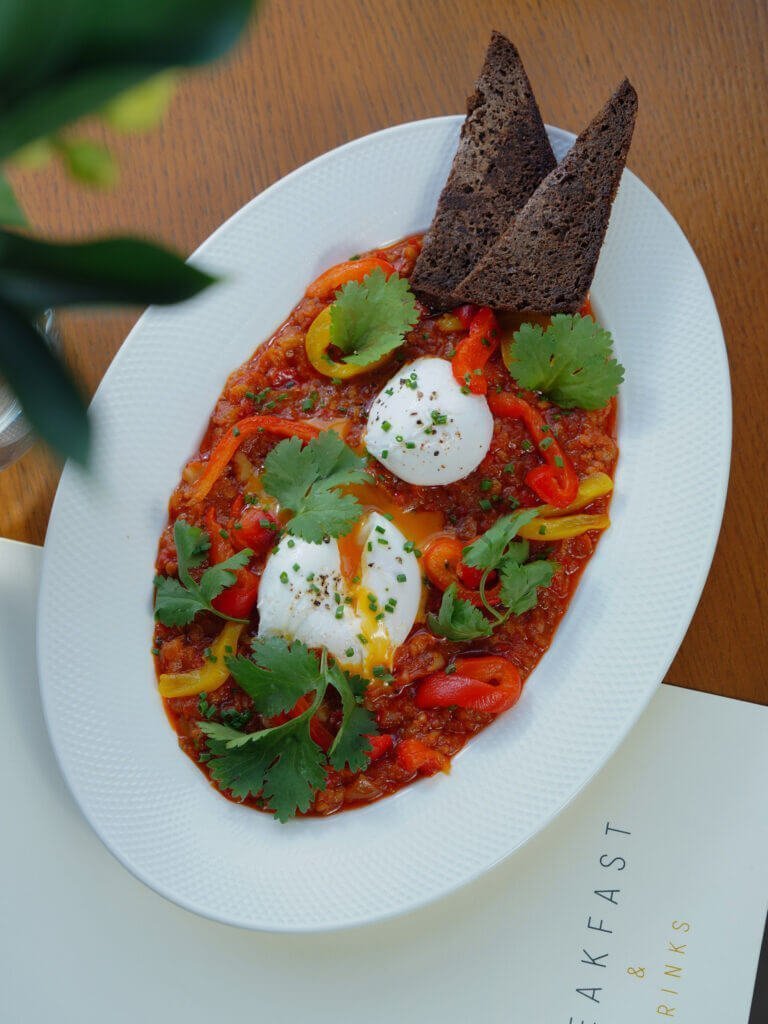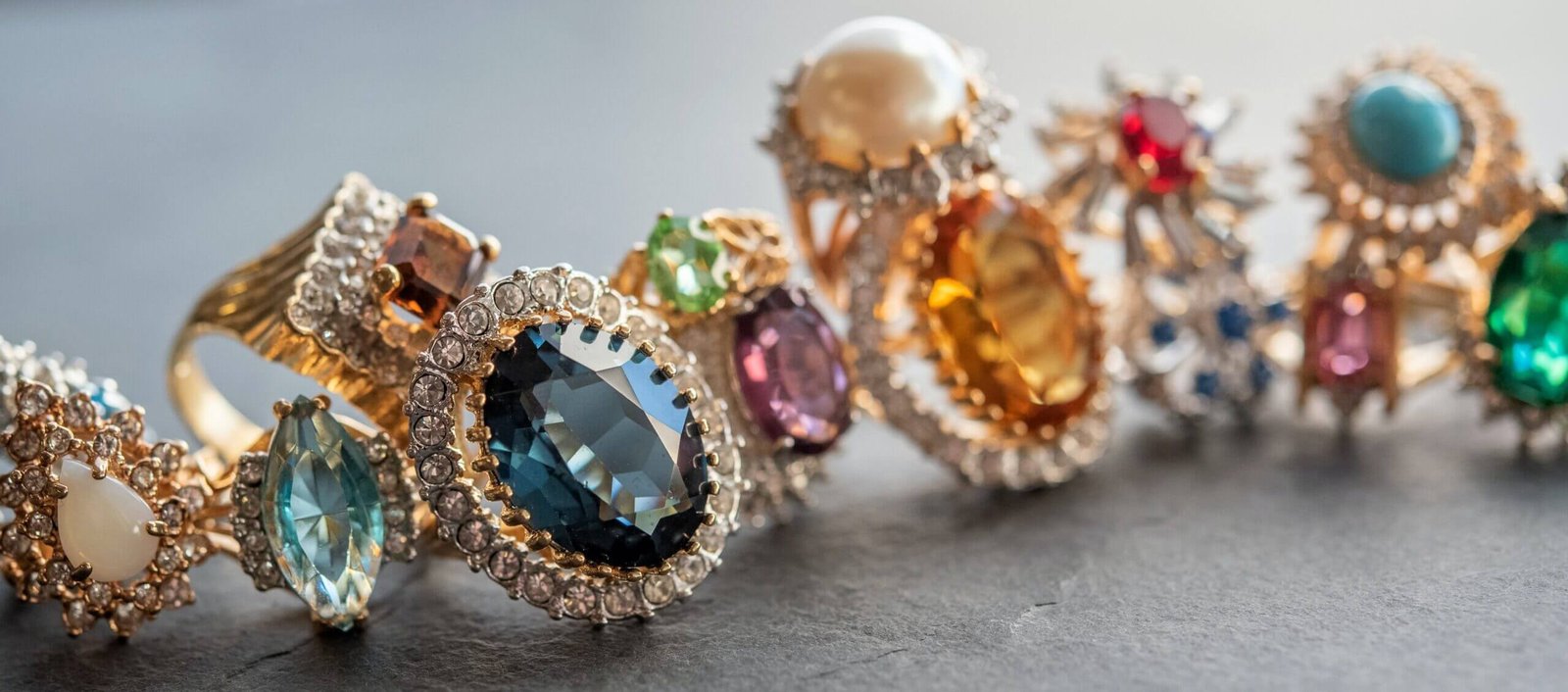What Are 3 Elements That Are Used To Make Jewelry?
What Are 3 Elements That Are Used To Make Jewelry? Have you ever wondered what goes into creating beautiful pieces of jewelry? In this article, we will explore three essential elements that are used in the making of jewelry. From precious metals to gemstones, these components are carefully selected and crafted to create stunning accessories that add sparkle and elegance to our lives. So, let’s take a closer look at the fascinating world of jewelry-making and discover the key ingredients that make these pieces shine!

Metals
When it comes to jewelry, metals play a vital role in creating beautiful and durable pieces. There are numerous metals used in jewelry making, each with its own unique properties and characteristics. Let’s explore some of the most popular metals in the world of jewelry.
Gold
Gold has been revered and cherished for centuries and continues to be one of the most sought-after metals in jewelry making. Known for its warm, lustrous yellow hue, gold is a symbol of wealth, luxury, and elegance. It is a highly malleable metal, making it easy for jewelers to shape and mold into intricate designs. Gold jewelry is typically crafted in 14k or 18k gold, which indicates the purity of the metal.
Silver
Silver is a versatile and affordable metal commonly used in jewelry making. Its beautiful white luster and affordability make it a popular choice for everyday wear. Silver jewelry is usually crafted from sterling silver, which is a combination of 92.5% pure silver and 7.5% copper or other metals for added strength and durability. Sterling silver jewelry can be found in a wide range of styles, from minimalist designs to intricate filigree work.
Platinum
Platinum is a rare and precious metal known for its exceptional strength and durability. It is one of the densest metals, making it resistant to wear and tear. Platinum jewelry is highly valued for its remarkable shine and pure white color, which does not tarnish or fade over time. Due to its rarity and superior quality, platinum is often used in high-end and luxury jewelry pieces.
Copper
Copper is an ancient metal that has been used in jewelry making for thousands of years. Its warm reddish-brown color adds a unique and rustic charm to jewelry pieces. Copper jewelry is favored for its affordability and versatility. It can be easily manipulated and shaped into various designs, making it a popular choice for artisan and bohemian-style jewelry.
Titanium
Titanium is a modern and contemporary metal that has gained popularity in the jewelry industry. It is known for its exceptional strength, lightweight nature, and remarkable resistance to corrosion. Titanium jewelry is often used for its hypoallergenic properties, making it a suitable choice for individuals with sensitive skin. This metal can be found in a variety of colors, thanks to its ability to be anodized, offering a vast array of design possibilities.
Gemstones
Gemstones are natural or synthetic minerals that are cut and polished to enhance their beauty and used in jewelry making. They add a touch of color, sparkle, and sophistication to any piece of jewelry. Let’s take a closer look at some popular gemstones used in jewelry.
Diamonds
Diamonds are the epitome of luxury and elegance. Known for their exceptional brilliance and hardness, diamonds are the hardest gemstone on Earth. They come in various colors, with white or colorless diamonds being the most sought after. Diamonds are often used as center stones in engagement rings and are a symbol of everlasting love and commitment.
Rubies
Rubies are gemstones prized for their vibrant red color and exceptional rarity. They are one of the most valuable gemstones alongside diamonds, emeralds, and sapphires. Rubies symbolize passion, love, and power. Their intense red hue makes them a striking choice for statement jewelry pieces, adding a touch of depth and allure.
Sapphires
Sapphires, often associated with the color blue, are actually available in a rainbow of colors. They are highly regarded for their dazzling beauty, durability, and versatility. Sapphires are known to symbolize wisdom, nobility, and loyalty. Blue sapphires are particularly popular in engagement rings, although pink, yellow, and even white sapphires are also highly prized.
Emeralds
Emeralds exude a mesmerizing green hue that is truly captivating. Known as the birthstone for May, emeralds are cherished for their lush color and rarity. They symbolize rebirth, love, and fertility. Emeralds are often used in high-end jewelry and add a touch of sophistication and regality to any piece.
Amethysts
Amethysts are a variety of quartz known for their stunning purple shades. Ranging from pale lavender to deep violet, amethysts have a regal allure that appeals to many. These gemstones are believed to promote peace, balance, and tranquility. Amethyst jewelry is both beautiful and affordable, making it a popular choice for those seeking elegance on a budget.

Organic Materials
In addition to metals and gemstones, jewelry makers often incorporate organic materials into their designs. Organic materials add a touch of natural beauty and uniqueness to jewelry pieces. Let’s explore some popular organic materials used in jewelry making.
Pearls
Pearls are the epitome of classic elegance. These lustrous gems are created by mollusks, such as oysters, when an irritant enters their shell. Pearls come in various colors, shapes, and sizes, with white pearls being the most popular. They are often used in necklaces, earrings, and bracelets, adding a touch of sophistication and femininity to any outfit.
Ivory
Ivory is a controversial organic material commonly associated with exotic and antique jewelry. It is derived from the tusks of elephants, walruses, and other animals. While the use of ivory in jewelry has become increasingly regulated and discouraged due to concerns about animal conservation and ethical sourcing, antique ivory jewelry still holds historical and cultural significance.
Amber
Amber is a fossilized tree resin that has been used in jewelry making for centuries. It comes in various shades of yellow, brown, and even green, with each piece telling a unique story. Amber is believed to possess healing properties and is often used in statement jewelry pieces for its warm and captivating appearance.
Coral
Coral is an organic gemstone formed from the skeletal remains of marine polyps. It comes in a range of colors, from pale pink to vibrant red, and is often used in tropical and beach-inspired jewelry. Coral jewelry adds a touch of whimsy and natural beauty to any outfit, reminding us of the wonders of the ocean.
Wood
Wood is a versatile organic material that is increasingly being used in contemporary jewelry designs. It offers a unique and earthy aesthetic, making it a popular choice for those seeking a natural and eco-friendly alternative. From intricately carved wooden pendants to polished wooden beads, wood jewelry brings a sense of warmth and simplicity to any jewelry collection.
Other Metals
In addition to the traditional precious metals, there are several other metals that are often used in jewelry making. These metals offer unique characteristics and styles, adding variety and versatility to the world of jewelry.
Bronze
Bronze is an alloy composed primarily of copper and tin, although other metals may be added. It has a warm golden-brown color and is desired for its durable and corrosion-resistant qualities. Bronze jewelry often exudes a vintage or antique charm, making it a popular choice for those seeking a rustic or bohemian look.
Brass
Brass is another popular alloy composed primarily of copper and zinc. It has a beautiful golden-yellow color and is known for its malleability and excellent conductivity. Brass jewelry can be found in an array of styles, from minimalist modern designs to intricate ethnic-inspired pieces. It is a cost-effective alternative to gold and adds a touch of warmth and elegance to any outfit.
Sterling Silver
Sterling silver, mentioned earlier, deserves a special mention due to its popularity and versatility. It is a combination of 92.5% pure silver and 7.5% copper or other metals. Sterling silver jewelry is cherished for its affordability, durability, and timeless appeal. It can be found in a wide range of styles, from delicate everyday pieces to bold statement jewelry.
White Gold
White gold is an alloy of gold and other white metals, such as silver, nickel, palladium, or platinum. It mimics the appearance of platinum or silver while offering a more affordable alternative. White gold jewelry often undergoes a plating process called rhodium plating to enhance its brilliant white color. It is a popular choice for engagement rings, wedding bands, and other fine jewelry.
Palladium
Palladium is a precious metal that belongs to the platinum group of metals. It is valued for its striking silver-white color, remarkable strength, and resistance to tarnish. Palladium jewelry is gaining popularity as a more affordable alternative to platinum. It offers the same lustrous beauty and durability without the hefty price tag.

Birthstones
Birthstones are gemstones associated with each month of the year. These gemstones hold personal significance and are often incorporated into jewelry pieces to commemorate one’s birth month or celebrate special occasions. Let’s explore some popular birthstones.
Garnet
Garnet is the birthstone for January and comes in a variety of colors, with red being the most well-known. Red garnets symbolize passion and vitality. They are often used in rings, pendants, and earrings, adding a touch of fiery elegance to any jewelry collection.
Aquamarine
Aquamarine is the birthstone for March and is known for its tranquil blue color reminiscent of the ocean. It symbolizes serenity, purity, and eternal youth. Aquamarine jewelry is often associated with a sense of calmness and is popular for its refreshing and ethereal appeal.
Diamond (April)
Diamond, mentioned earlier, is also the birthstone for April. Known as the “king of gemstones,” diamonds symbolize strength, purity, and everlasting love. Diamond jewelry, particularly diamond engagement rings, holds significant sentimental value and serves as a timeless symbol of commitment and devotion.
Emerald (May)
Emerald, mentioned earlier, is the birthstone for May. With its rich green color, emeralds symbolize rebirth, love, and wisdom. Emerald jewelry is cherished for its lush beauty and can be found in a variety of designs, from elegant solitaire rings to intricate pendant necklaces.
Ruby (July)
Ruby, mentioned earlier, is the birthstone for July. With its passionate red hue, rubies symbolize love, courage, and vitality. Ruby jewelry is highly desired for its captivating beauty and is often incorporated into statement pieces, adding a touch of drama and sophistication.
Precious Metals
Precious metals are highly valued for their rarity, beauty, and durability. These metals are often used in the creation of fine and high-quality jewelry. Let’s explore some of the most popular precious metals used in jewelry making.
Gold
Gold, mentioned earlier, deserves another mention when discussing precious metals. Its timeless allure and enduring value make gold a prized choice for fine jewelry. From delicate gold chains to intricately designed gold earrings, gold jewelry is cherished for its warmth, elegance, and ability to withstand the test of time.
Silver
Silver, mentioned earlier, is another precious metal valued for its beauty and versatility. Fine silver, which contains 99.9% pure silver, is known for its bright white luster and inherent elegance. Silver jewelry is often adorned with intricate designs and delicate details, making it a favorite choice for both casual and formal wear.
Platinum
Platinum, mentioned earlier, is considered one of the most precious metals in the world. Its remarkable durability, purity, and lustrous appearance make it highly sought-after in the realm of fine jewelry. Platinum jewelry exudes luxury and sophistication, often used to create exquisite engagement rings, wedding bands, and other high-end pieces.
Palladium
Palladium, also mentioned earlier, is a lesser-known precious metal that has gained popularity in recent years. It belongs to the platinum group of metals and shares similar characteristics with platinum, such as its striking white color and durability. Palladium jewelry offers a more affordable alternative to platinum while maintaining the same level of elegance and quality.
Rhodium
Rhodium is a precious metal often used in jewelry to enhance the appearance of white gold or platinum. It is a member of the platinum group of metals and is known for its exceptional brightness and resistance to corrosion. Rhodium plating gives jewelry a high-polished, reflective surface, as well as protecting it from scratches and tarnish.

Semi-Precious Stones
While precious gemstones hold a special place in the world of jewelry, semi-precious stones offer a more affordable yet equally stunning alternative. These gemstones come in a wide variety of colors and are often used for their unique aesthetics. Let’s explore some popular semi-precious stones.
Citrine
Citrine is a vibrant yellow gemstone associated with warmth, positivity, and abundance. It is often used in jewelry to bring joy and vitality to the wearer. Citrine jewelry provides a sunny burst of color and is particularly cherished for its affordability and accessibility.
Peridot
Peridot is a gemstone known for its stunning lime-green color. It is often associated with positive energy, growth, and harmony. Peridot jewelry is favored for its fresh and vibrant appearance and is particularly popular in summer or nature-inspired designs.
Opal
Opal is a mesmerizing gemstone that displays a spectrum of colors within its depths. It is often associated with mystery, imagination, and creativity. Opal jewelry is highly valued for its unique play of colors and adds a touch of ethereal beauty to any outfit.
Topaz
Topaz comes in a variety of colors, but the blue variety is the most well-known. Blue topaz symbolizes communication, calmness, and self-expression. Topaz jewelry provides a serene and tranquil aesthetic, making it a popular choice for those seeking a sense of peace and serenity.
Amethyst
Amethyst, mentioned earlier, also deserves a mention here. As a semi-precious stone, amethyst is prized for its stunning purple hues and affordability. It carries a soothing and protective energy, making it a popular choice for those seeking spiritual and emotional balance. Amethyst jewelry exudes elegance and adds a touch of regality to any ensemble.
Enamel
Enamel is a unique technique used in jewelry making that involves the fusion of powdered glass onto metal through a high-temperature firing process. This technique allows for vibrant colors and intricate designs to be achieved. Let’s explore some types of enamel used in jewelry.
Hard Enamel
Hard enamel, also known as cloisonné enamel, is a highly durable and scratch-resistant type of enamel. It results in a smooth, glossy surface and often features raised metal edges. Hard enamel jewelry is known for its vibrant colors and intricate details, making it a favorite among collectors and enthusiasts.
Soft Enamel
Soft enamel is a type of enamel that results in a textured surface. It has a slightly recessed appearance and offers a more affordable option compared to hard enamel. Soft enamel jewelry is often used for its versatility and can be found in a variety of designs, from playful and colorful to vintage-inspired and elegant.
Cold Enamel
Cold enamel, also known as resin enamel, refers to a type of enamel that is not heat-set like traditional enamel. Instead, it is cured or hardened at room temperature or with the help of UV light. Cold enamel allows for a wider range of colors and is often used to create vibrant and flashy jewelry pieces.
French Enamel
French enamel, also known as painted enamel or Limoges enamel, refers to a technique where enamel paint is applied by hand to a metal surface. The result is a beautifully detailed and intricate design. French enamel jewelry is highly regarded for its artistry and fine craftsmanship, often showcasing miniature paintings or delicate landscapes.
Transparent Enamel
Transparent enamel, as the name suggests, allows light to pass through the enamel, creating a translucent effect. This type of enamel offers versatility and allows for the underlying metal to show through, resulting in a unique and captivating look. Transparent enamel jewelry can feature a variety of colors and is often used to create delicate and ethereal pieces.
Glass
Glass is a versatile material that has been used in jewelry making for centuries. It comes in a wide array of colors, shapes, and finishes. Let’s explore some popular forms of glass used in jewelry.
Beads
Glass beads are a staple in jewelry making and offer endless design possibilities. They come in a variety of shapes, sizes, and colors, allowing for creative and unique jewelry designs. Glass bead jewelry can be found in styles ranging from fun and whimsical to sophisticated and elegant.
Pendants
Glass pendants are a popular choice for those seeking a statement piece of jewelry. They can be made from various types of glass, such as dichroic glass or lampwork glass, and showcase intricate patterns or vibrant colors. Glass pendant jewelry adds a bold and eye-catching element to any outfit.
Cabochons
Glass cabochons, often referred to as glass stones, are smooth and polished pieces of glass with a convex top and flat back. They are often used as centerpieces in rings, earrings, and necklaces, adding a pop of color and shine to jewelry designs. Glass cabochons come in a wide range of colors and can mimic the appearance of gemstones.
Mosaic Tiles
Mosaic tiles made of glass are used to create stunning and intricate patterns in jewelry and other artistic forms. They are often arranged in a mosaic design, with each tile contributing to the overall picture or design. Glass mosaic jewelry is unique and attention-grabbing, showcasing the artistry and craftsmanship of the maker.
Crystals
Crystal glass, also known as lead glass or Swarovski crystal, is a high-quality glass made with a high percentage of lead oxide. This type of glass offers exceptional brilliance and clarity, mimicking the look of gemstones. Crystal jewelry is highly coveted for its dazzling sparkle and can be found in a wide range of designs, from earrings and bracelets to statement necklaces.
Leather
Leather has long been used in jewelry making, adding a touch of rustic and natural charm to designs. Let’s explore some popular forms of leather used in jewelry.
Leather Cord
Leather cord is a versatile and durable material used to create necklaces and bracelets. It is often used in bohemian or tribal-inspired jewelry designs and provides a rustic and earthy aesthetic. Leather cord jewelry can be adorned with various pendant styles or be worn on its own, exuding a laid-back and casual vibe.
Leather Strips
Leather strips are narrow pieces of leather that can be used in various jewelry designs. They can be wrapped around the wrist or finger to create a unique and personalized piece. Leather strip jewelry is often adorned with beads or charms, allowing for endless customization possibilities.
Leather Braids
Leather braids, also known as braided leather or woven leather, offer a textured and eye-catching look. They can be incorporated into bracelets or necklaces, adding a touch of intricacy and visual interest to jewelry designs. Leather braid jewelry is popular among those seeking a bohemian or tribal-inspired aesthetic.
Leather Cords with Clasps
Leather cords with clasps offer convenience and ease of wear. They are pre-made leather cords that come with a clasp attached, allowing for easy fastening and adjustment. Leather cord with clasp jewelry is often seen in casual and everyday wear designs, providing a stylish and effortless accessory option.
Flat Leather Strips
Flat leather strips are sleek and versatile, lending themselves to a wide range of jewelry designs. They can be used for creating chokers, bracelets, or even earrings. Flat leather strip jewelry offers a modern and minimalist aesthetic, making it a favorite among those seeking a contemporary and edgy look.
In conclusion, jewelry making involves a wide range of materials, each contributing its own unique qualities and aesthetic appeal. From the timeless allure of gold and the sparkling beauty of gemstones to the natural charm of organic materials and the versatility of enamel and glass, jewelry makers have an endless array of options to create stunning and meaningful pieces. Whether you prefer classic elegance, bohemian flair, or modern minimalism, there is a jewelry material and style to suit every taste and preference. So, you know the 3 elements that are used to make jewelry.



